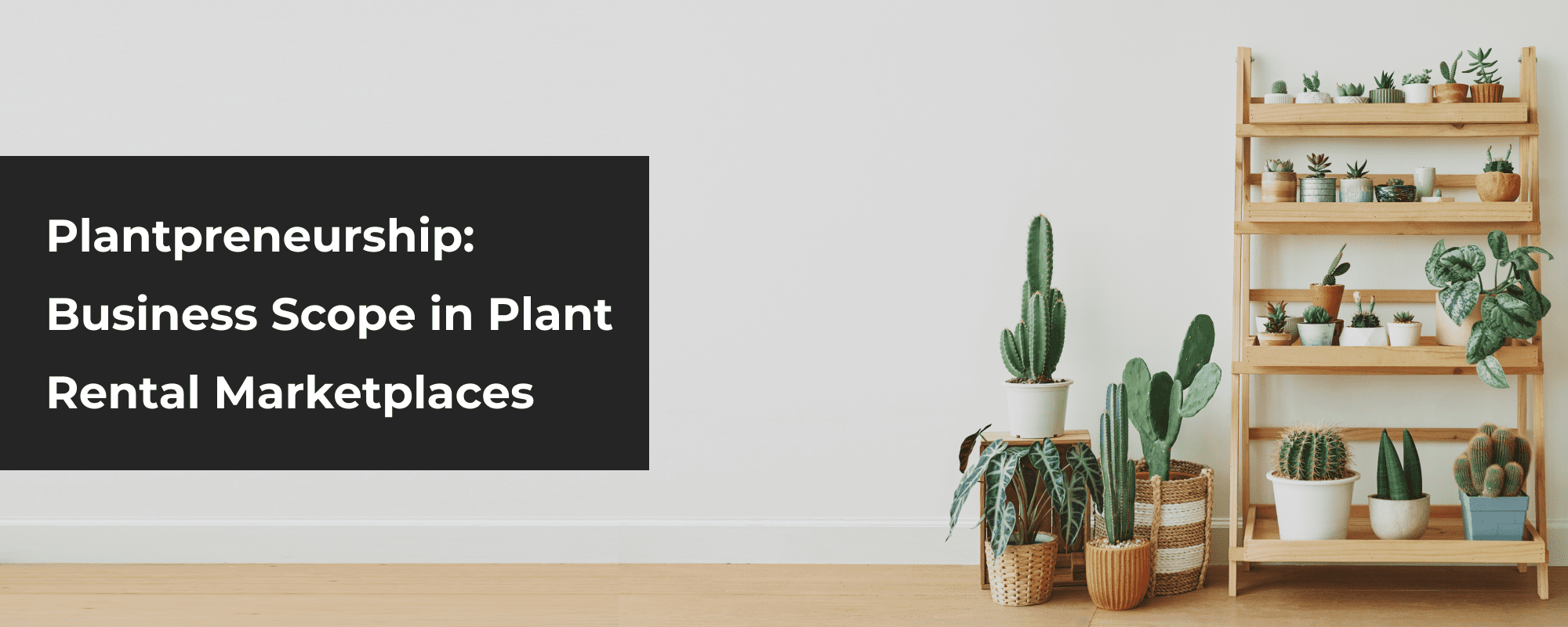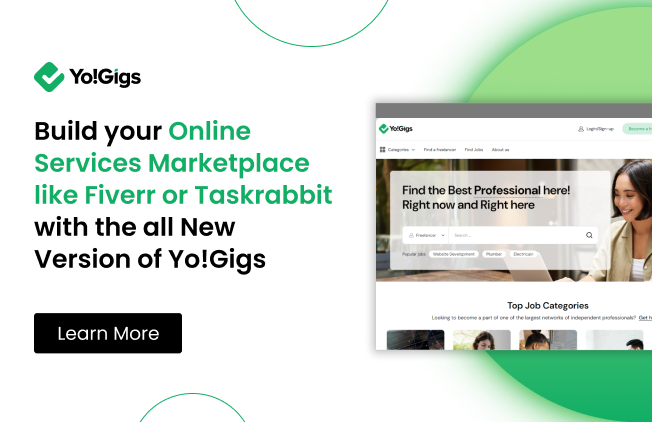Why is Launching a Plant Rental Marketplace Highly Profitable?
From a multi-perspective view, the business scope in launching a plant rental business is very impressive. To put in context, we have listed all our research findings below:
As per reports, the global market size of the indoor plant industry was $17.93 billion in 2021. By the end of 2029, the industry is estimated to capture an additional $11 billion in market value, reaching an overall share of $26.23 billion. Furthermore, the demand for plants such as flowering plants, foliage plants, succulents, bonsais and herbs is ubiquitous in worldwide markets, especially at properties like homes, offices, hotels, events, and holiday sites.
Another reason behind the global demand for indoor plants are their multiple use cases. In office spaces, plants are said to have significant psychological effects, such as stress reduction, productivity increase and creativity boost. At homes, people keep plants for their antimicrobial and air purifying properties. During humid weather, plants help manage indoor humidity. Certain plants are also said to have herbal and therapeutic properties.
Unlike other marketplaces, where onboarding vendors is a challenge, finding vendors for plant rental marketplaces is easy. As the online competition for plant rental businesses is low, it is easier to convince local vendors to upload their plants on your marketplace. By uploading, those vendors can target a wider audience and generate more revenue.
-
Suitable for Multiple Rental Models
Plants can be rented out for varying durations, such as daily, weekly and monthly. This provides pricing flexibility to business owners as they can come up with different rental models on their marketplace. For example, they can use daily rentals to target event planners and can also come up with monthly lease agreements for residential and commercial plant rental operations.
Rental plants are often ordered in numbers or packages. Due to this, their ticket size is impressive and so is the profit margin. Furthermore, for commercial buildings, plants are rented out in bulk packages. Another reason behind the big ticket size of rental plants is the need for variety. For example, sourcing exotic plants is challenging and thus, they can be rented out at a better price.
Join the Plant Rental Industry Today
Plants You Can Rent on a Plant Rental Marketplace
To attract more customers and capture a generous market share, it is advised to have a more diverse offering of rental plants on your marketplace. For creating a diverse product catalog, you can consider renting the following types of plants:
- Miniature Plants (Under 12 inches): Miniature plants grow very slow. Some examples of miniature plants are Polka Dot plants, Nerve plants, Bonsai Plants, Club Moss, Leptinella, English boxwood, and the Chinese Money plant.
- Small-Size Plants (1 feet to 4 feet): Some examples of small-size plants are Tulips, Autumn Fern, Money Plant, Roses, Lilies, Orchids, Cactuses, Daisies, Dahlia and Marigold.
- Large-Size Plants (4 feet to 8 feet): Snake Plant, Parlor Palm, European Palm, Swiss Cheese Plant, Jade Plant, Fiddle Leaf Fig, Rubber Fig, Dragon Tree, etc. fall under this category of plants.
- Wall Mounts: Wall mount plants are small pots either hung on walls as ornaments or wall frames made with cork, cedar or grapewood as base.
- Bundles and Packages: For a better price value, customers tend to rent out entire combos, bundles and packages for different room sizes, patios and corridors.
- Accessories and Add-Ons: Along with plant rental operations, you can also sell accessories such as watering cans, hose nozzles, sprinklers, stakes, gardening tools and even empty pots and vases.
Events and Occasions when Plant Rental Demand is High
Although the demand for plant rental is high all year round, there are some occasions when there is a surge in demand. The primary
Some of these are:
- Christmas
- Weddings
- Housewarming Parties
- Press Conferences
- Political Events
- Educational Events
- Award Shows and Ceremonies
Top Plant Rental Businesses to Inspire You
Several players already exist in the plant rental industry. Some of these players are incumbents with decades in existence, already proving the viability of launching a plant rental business. For your online plant rental marketplace, you can take inspiration from the following references:
| Business |
Country |
Website |
| Cinema Greens |
USA |
https://cinemagreens.com/ |
| Ambius |
Canada |
https://www.ambius.com/ |
| Creative Plant Rentals |
USA |
http://www.creativeplantrentals.com/ |
| Simply Plants |
UK |
https://simplyplantsuk.com/ |
| Frenchams Group |
Australia |
https://www.frenchams.com.au/ |
| 800 Plant It |
USA |
https://800plantit.com/ |
| Greenspace Plants |
Canada |
https://greenspaces.id/ |
| Tropical Plant Designs |
USA |
https://tropicalplantdesign.com/ |
| Planterra |
USA |
https://planterra.com/ |
| Gold Leaf Botanicals |
Canada |
https://goldleafbotanicals.ca/ |
| Plantz |
USA |
https://www.plantz.us/ |
Key Challenges in Plant Rental Marketplaces and their Solutions
While venturing out in the plant rental industry, some concerns may come to your mind. However, below are very effective and proven solutions to those concerns.
Delivery of live plants is the primary concern that comes to mind while considering online plant rental operations. The solution to this problem has been already presented to us by the global ecommerce giant Amazon, who start retail plant operations back in 2017. Amazon’s range of plants varies from bonsai and succulents to shrubs and perennials.
To solve the delivery issue, Amazon sellers use smart packaging, such as using stakes and cardboard rolls to support and protect the shoots of plants, and padding the delivery box with foam. Due to the perishable nature of plants, rental marketplaces can also restrict certain shipping destinations or use faster delivery options (paid by customers) to ensure the survival of plants during transit.
Numerous plants require extensive care and proper maintenance. Not all the time customers have the proper knowledge to provide essential care to plants. Thus, to ensure the safety of their plants, rental marketplaces can provide plant care guides along with each order. For upselling purposes, they can also sell plant care services in hyper local regions. To safeguard expensive or exotic plants, rental marketplaces can collect rental security or buy insurance.
Additionally, you can also upload plant care blogs and guides on your marketplace and attach PDF documents on plant description pages.
Essential Components of a Plant Rental Marketplace
To launch a full-fledged marketplace for plant rental operations, you will require clear documentation of all your requirements. These can include the various web pages and essential features you require to cover every use case. Once the documentation is complete, you can either opt for a readymade solution or custom software development to build your marketplace.
In the modern world where digitization has already taken the center stage, opting for a readymade plant rental software makes more sense. In case, if you require your marketplace to be developed on a very specific technology, then custom development is the only option. Note that to add certain features in a ready-made software, you can request the software provider for customization as well.
Webpages Required on a Plant Rental Marketplace
Note: Some pages in the following list are optional. You can bookmark this guide to save the list of webpages and features for later reference. For easy understanding, we have also categorized the web pages into 3 categories, which are branding, operations and legal.
| Branding |
Operations |
Legal |
| Homepage |
How it Works? |
Privacy Policy |
| About Us Page |
Plant Listings Page |
Terms and Conditions |
| Contact Us Page |
Category |
– |
| Blog |
Product Page |
– |
| FAQ |
Checkout Page |
– |
| Reviews |
Support |
– |
| News |
– |
– |
Features Required on a Plant Rental Marketplace
- Rental Booking Calendar: Required to accept rental date inputs on the marketplace. The booking calendar also assists in displaying plant availability, preventing double booking and overall invoicing of the order
- Agreement Management and eSign: These features are required to sanction the terms and conditions of each and every vendor and sign them directly on the marketplace.
- Plant Comparison: Every plant has different features and benefits. Customers usually aren’t aware of them. Thus, to help them make a better decision, you can provide a plant comparison feature on the marketplace.
- Inventory Management: For properly managing the marketplace, you will need inventory management features like real-time inventory tracking, maintenance buffer period, custom stock alerts and inventory reports.
- Rent Plus Sell: Sales functionality is also required on a rental marketplace. It can be used to put clearance sales and sell plants, tools and other equipment.
- Request for Quote Management: Option to allow customers request custom price quotes for bulk and complex orders.
- Overdue Returns: Your marketplace should also alert you of any late returns. Furthermore, it can have a module to set different late return periods and charge a minor late return fee accordingly.
- Rental Security Management: The feature to collect rental security with every order. Any unexpected damages due to the plant or flower pot by customer’s negligence can be reimbursed from the rental security.
- Tiered Pricing: The option to define and set varying daily, weekly and monthly rental charges for all plants.
- Product Bundling: Required to create buy together plant combos and entire packages.
- Map View Filter: A listings filtering option to help customers find rental plants in their close vicinity.
- Rental Add-Ons: Add-on products improve the overall rental experience of customers. On a plant rental marketplace, you can sell add-ons and services like flower pots, watering tools, gardening tools, plant care services, etc.
- Discounts and Promotion: Option to set various types of discounts, such as bulk order discounts, rental duration discounts, flat rate discounts, percentage discounts, coupon code discounts, etc.
- File Attachment: Option to attach plant care guides and other documents in PDF or other formats in product listings.
Next-Gen Plant Rental Software for All Use-Cases
Revenue Streams Possible on a Plant Rental Marketplace
Online plant rental marketplaces can generate revenue via multiple revenue streams:
- Rental Commission
- Rental Fees
- Subscription Packages
- Featured Listings
- Display Ads
- Plant Sales
- Accessory Sales
How Yo!Rent Helps You in Setting up a Plant Rental Marketplace?
Yo!Rent is a self-hosted solution built-in with all essential features to launch a versatile plant rental marketplace. With a captivating interface and all-encompassing dashboard, it provides a comprehensive suite to simplify daily rental processes such booking, delivery, inventory, rental security, and returns. Reinforced with RFQ module, agreement eSign and sales support, Yo!Rent effortlessly handles bulk orders and B2B operations as well. Below are some other ways Yo!Rent helps plant rental businesses:
- It comes preloaded with all aforementioned features including booking calendar, security management, plant comparison, eSign, rental add-ons, map view filter, etc.
- Yo!Rent automates key processes of plant rental operations, such as bookings, invoicing, inventory tracking, order tracking, payments, internal communications, etc. Thus, also reducing the operational costs.
- Along with operational costs, Yo!Rent immensely reduces the overall time-to-market (TTM) so that you can get a head start in operations and also a competitive edge in several markets.
- Available at a one-time cost and being fully scalable, Yo!Rent grows with your business. It does not have any limitations on user profiles, transactions and listing plus no monthly recurring costs. In brief, it is the most cost effective solution for long term operations.
- Yo!Rent is also multli-lingual and multi-currency, so that you can easily venture into multiple markets and target diverse audiences with utmost ease.
- Yo!Rent provides the best value for money considering it has maximum number of features and is available at one time cost.
Conclusion
Evaluating the current market scenario, it is possible to gain a competitive advantage by launching your plant rental marketplace in the industry. However, the same will require thorough planning and target market analysis. While a roadmap will help you identify the areas of advantage, reliable technology will help you provide the required value proposition to capture the market and simplify operations. If interested, you can reach out to us for plant rental software demo.



